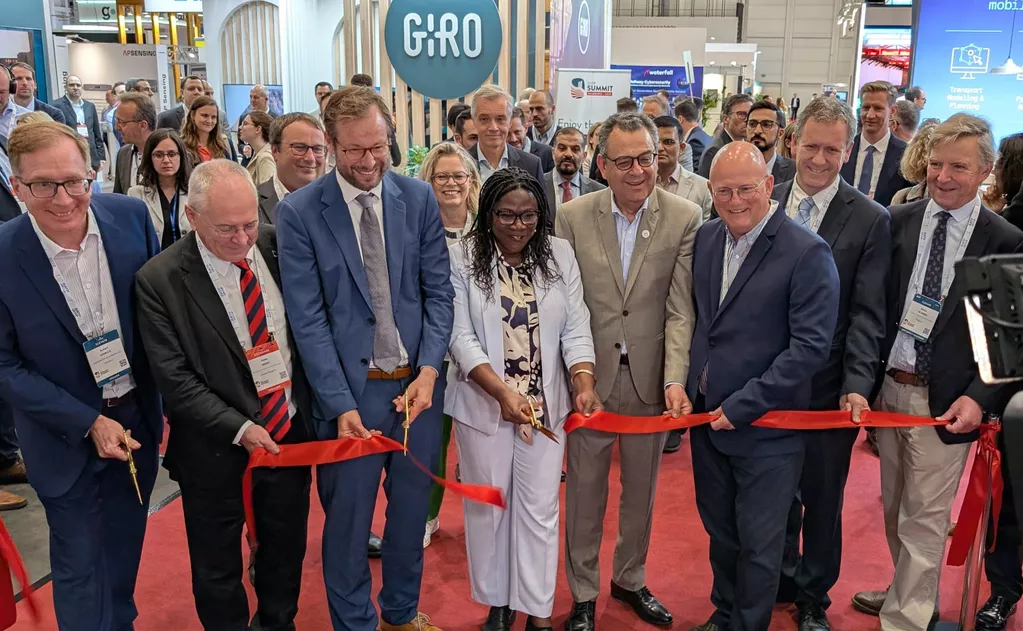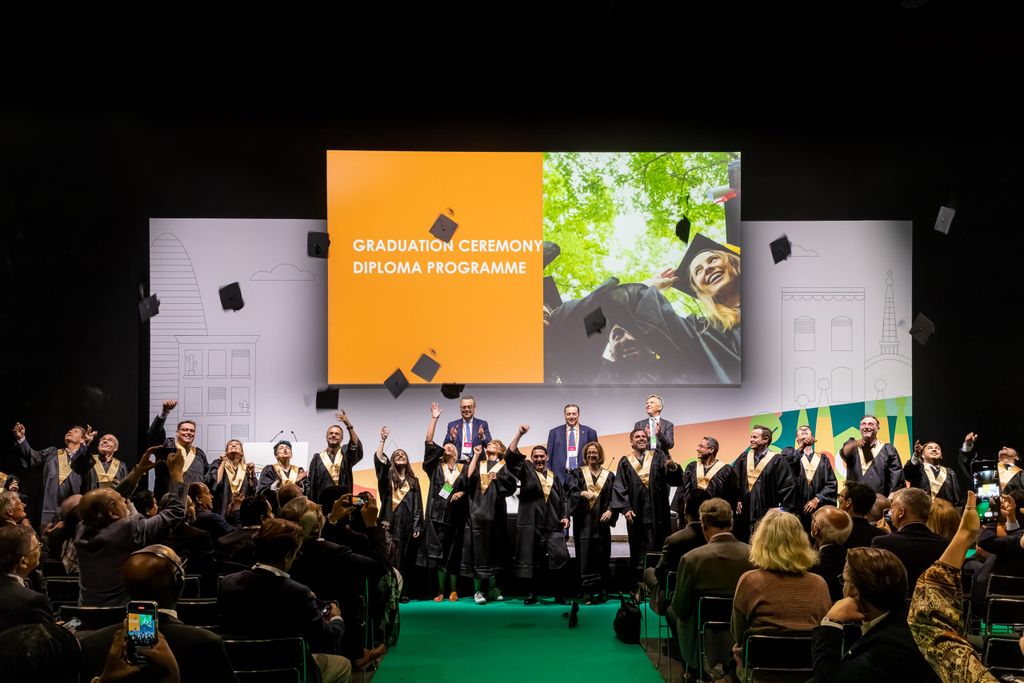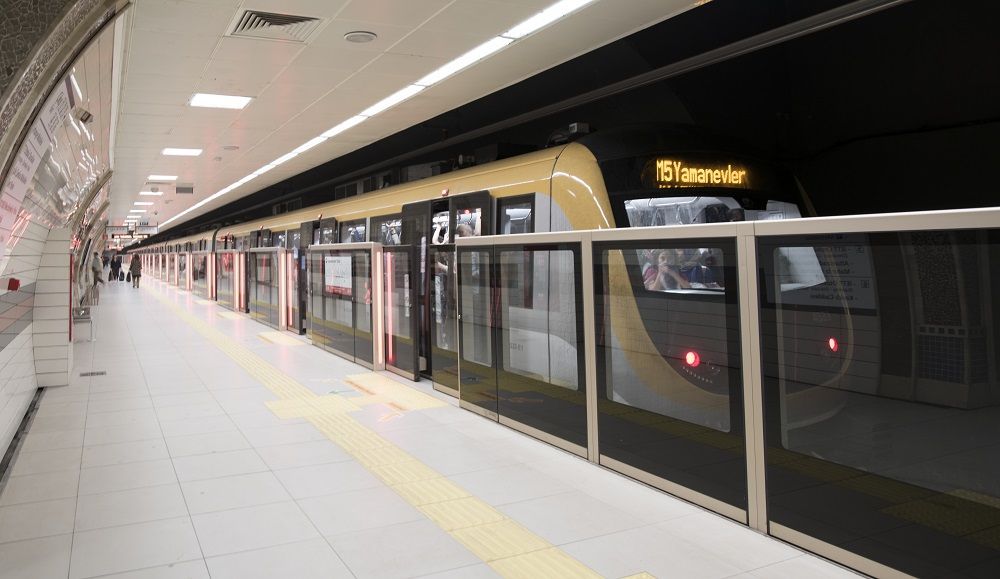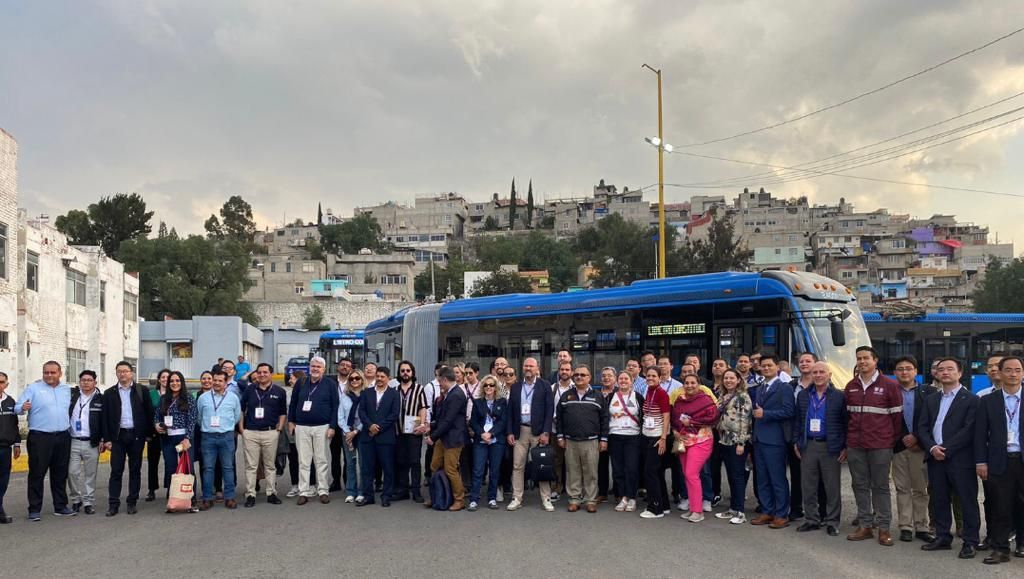
UITP Mexico Conference and Latin America Assembly: A Leap Forward for Sustainable Mobility
Under the dynamic theme of “Mobility Trends in Latin America”, a UITP International Conference took place on 30 October in Mexico City. With inspiring outcomes and strategic insights for the future of public transport, the gathering showed the strength of the public transport sector in Latin America. The conference spotlighted sustainable mobility, digital transformation, and innovative governance, drawing over 250 international attendees, including authorities from over 20 cities across Latin America.
Combining dynamic panels and discussions, the congress delivered a comprehensive review of critical issues facing the public transport sector. The sessions centered around sustainable mobility governance, institutional frameworks and funding, with specific debates on metros, electric buses, digital transformation and more.
from the UITP Mexico Conference
Following a vibrant fireside chat between UITP Secretary General Mohamed Mezghani, and the CEO of co-organizer, Mobility ADO, José Antonio Pérez, another 40 experts presented the state of the art across Latin America urban systems. They focused on the key role of public transport to advance the SDGs, the challenges and opportunities of mobility governance and funding, the strategic contribution of metros to improve quality of life, the enhancement of electric bus operations, data analytics, and ticketing & payment technologies.
This international gathering emphasized the power of collaboration, as evidenced by the partnerships fostered among transport authorities, operators, and technology providers from 12 countries, highlighting the transformative potential of shared expertise and unified efforts.
So let’s look at five key lessons!
- Prioritize Sustainable Policies: The conference highlighted the need for bold and integrated policies that support sustainable urban development and the crucial role of public transport to maximise social, economic and environmental positive impacts. The inclusive policies implemented by the Secretariat of Mobility of Mexico City and operators like La Rolita in Bogota or Metro do Rio de Janeiro underlined the importance of considering the citizen’s perspective and the internal dynamics of transport companies.
- Embrace Innovation Across Borders: The conference showcased the importance of cross-border innovation in public transport, with examples from Argentina, Brazil, Colombia, Chile, Costa Rica, Mexico and Uruguay presenting cutting-edge strategies and technologies. These included planning schemes, legislative advancements, contractual arrangements, financing mechanisms, advancements in electric bus procurements and operations and smart mobility, emphasising that progress in public transport is a collaborative effort that knows no boundaries.
- Strengthen Collaboration and Partnerships: A crucial lesson from the event is that forging partnerships is key to transformative change in the public transport sector. Discussions at the conference revealed the potential for significant advancements when authorities, operators and industry providers from various cities work in unison, as evidenced by the representation from over 20 cities.
- Value Feedback and Insights for Growth: Another lesson is the importance of engaging with and listening to feedback from diverse stakeholders. The experiences and insights shared by delegates during the debates and networking opportunities are instrumental in fostering idea exchange and driving the industry’s growth, reflecting the collective intelligence of the sector.
- Recognize and Celebrate Best Practices: Lastly, the conference was an ideal scenario to underscore and acknowledge outstanding achievements. A special recognition was handed over to the City of Mexico for its integrated mobility strategy. Maestro Lajous, Secretary of Mobility of the City, received it from UITP Latin American President, Ester Litovsky, and UITP Secretary General, Mohamed Mezghani. A second ceremony in the afternoon celebrated projects that exemplified excellence in communication, marketing and institutional values from various countries, demonstrating that celebrating best practices encourages excellence and sets standards for others to aspire to.
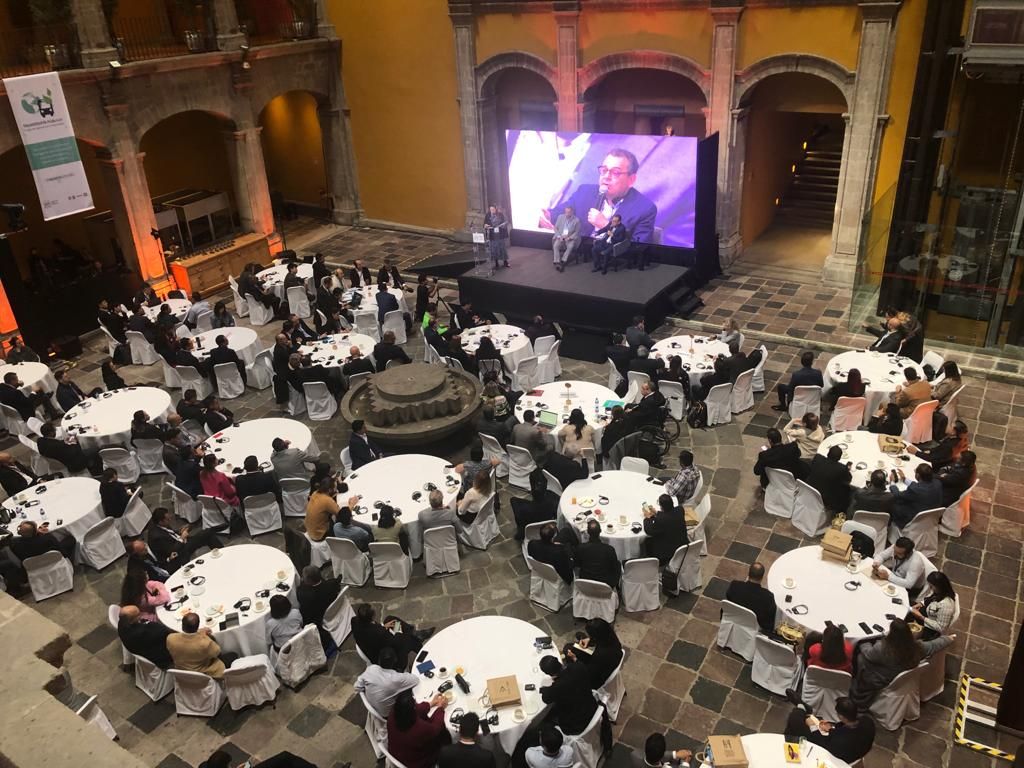

Showcasing Mexico’s public transport advancements
Participants of the conference had the unique opportunity to explore Mexico’s latest advancements in public transportation through a comprehensive technical visit.
The technical visits featured the Metrocable cablecar, electric buses, and trolleybuses. The Elevated Trolleybus, part of the electric bus network, showcased a remarkable 7.6km elevated route. This infrastructure piece serves as a vital artery, keeping the urban landscape connected and pulsing with life, demonstrating the city’s dedication to sustainable transit solutions.
Cablecar line 2 meanwhile, connects 7 stations over a 10.6 kilometre route. Over the full route, it reduces travel time from 75 to 36 minutes, a reduction of over 50%. The project serves areas of high population density, bringing people closer to work with safe and sustainable transport modes. Ultimately the cablecar promotes social mobility and provides equal opportunity to all.
After visiting the cablecar, UITP Secretary General Mohamed Mezghani said: “To show their appreciation to this service, the inhabitants of the served district have decorated the roofs and walls of their houses with 1800 painted murals. Public transport is not just a way to travel from A to B. It enhances people’s life and wellbeing.”
Showcasing the latest efforts to decarbonise public transport, participants also visited the line and depot of Metrobus line 3. The recent introduction of electric buses on this system does much more than simply reducing emissions: it improves air quality, enhances the commuter experience, and reduces noise pollution. The BRT-line connects a total of 34 stations.
The 20th Assembly of UITP’s Latin America Division, on 31st October, marked a milestone with 40 member organizations from across the region, including Argentina, Brazil, Chile, Colombia, Costa Rica, Mexico, and Uruguay, coming together to share invaluable knowledge and experiences. This collective effort reaffirmed a commitment to sustainable transportation solutions in Latin America, highlighting the importance of collaborative learning and growth.
As the Latin America Division celebrates two decades of progress, having expanded from seven members to over a hundred across 11 countries and more than 20 cities, it remains dedicated to forging stronger bonds with local authorities, government bodies, transport operators and industry. This commitment underscores a shared vision for the future of public transport, aiming to foster a community united in the pursuit of innovative and eco-friendly mobility solutions.
Advocacy and knowledge exchange have been pivotal in the division’s development strategy. UITP has actively facilitated the sharing of expertise and best practices through its network, leveraging the experience of member organizations. This synergy is channeled through five active working groups, which bring together over 30 organizations to tackle diverse topics and bridge local interests with UITP’s global reach.
Understanding the importance of capacity building, UITP has placed emphasis on enhancing the development of human capital within the region. By conducting seven training programs, they have educated over 200 professionals, dedicating more than 150 hours to technical content. This initiative is a reflection of UITP’s dedication to empowering local professionals, ultimately contributing to the sector’s drive towards improving urban life throughout Latin America.
Membership benefits







